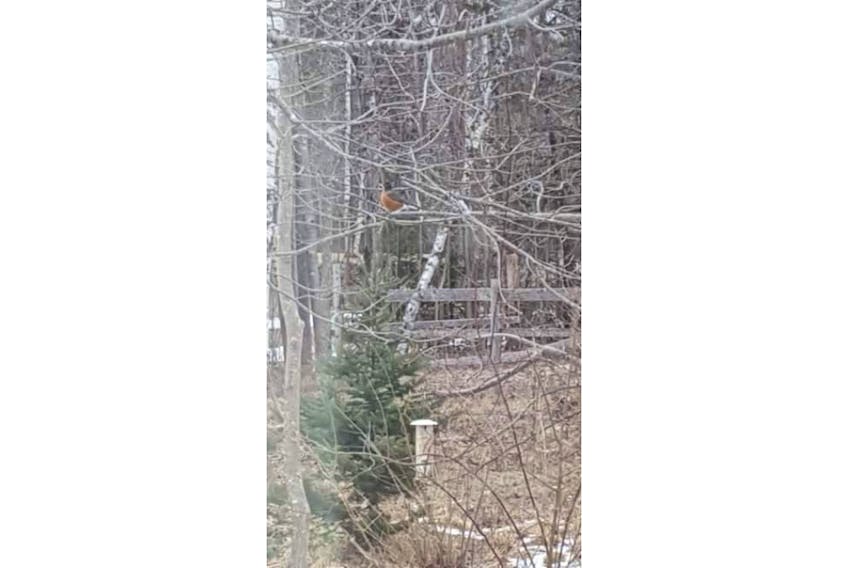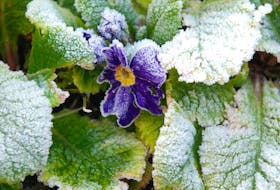Do you feed birds in your yard? I do. I love to watch them flutter around the feeders.
Last week, Vic Clark from Summerside, P.E.I., was watching birds at his backyard feeder when, to his surprise, he spotted a couple of robins feeding on the red berries of his holly bush. He says, “It seems to me that this is a tad early for the robins to be back in town. Is this a sign of an early spring or has the robin lost its way!?”
What does Grandma have to say about this?
Well Vic, I explained this to Grandma quite a number of years ago and she didn’t like it much at all. All her life, Grandma and many others, believed the sighting of a robin in late winter was a harbinger of spring. Today we know that while some robins do migrate south for the winter, other robins choose to stay year-round near their breeding areas.
Robins are a migratory species, but their migration is far more complicated than simply a shift southward. There seems to be a great deal of individual variation in where they spend the winter, though males are far more likely to remain in the north than females. There are good reasons for that. Come spring, the male’s main job is to find and defend a territory.
We don’t see as many robins in the winter because they spend less time in yards. They tend to congregate in large flocks in more rural areas and so we’re much less likely to see them. These robins are most often found in areas where there is some open water and where there are fruit trees. The water and fruit get them through the season.
Did you know that robins switch diets in the fall? They turn from earthworms to berries and other fruits. Because some forms of fruit, such as mountain ash berries and crab apples remain available all winter long, robins can stay in an area with food enough to support them all winter.
By the way, Grandma was not totally wrong with her assessment. In fact, over the past 20 years, researchers are finding that robins are increasingly staying near their breeding grounds.
So, while a robin sighting is a lovely thing, it’s not necessarily a sign of spring.
- Have a question about the weather? Email [email protected].
- Read more Grandma Says columns.
Cindy Day is the chief meteorologist for SaltWire Network.
RELATED









